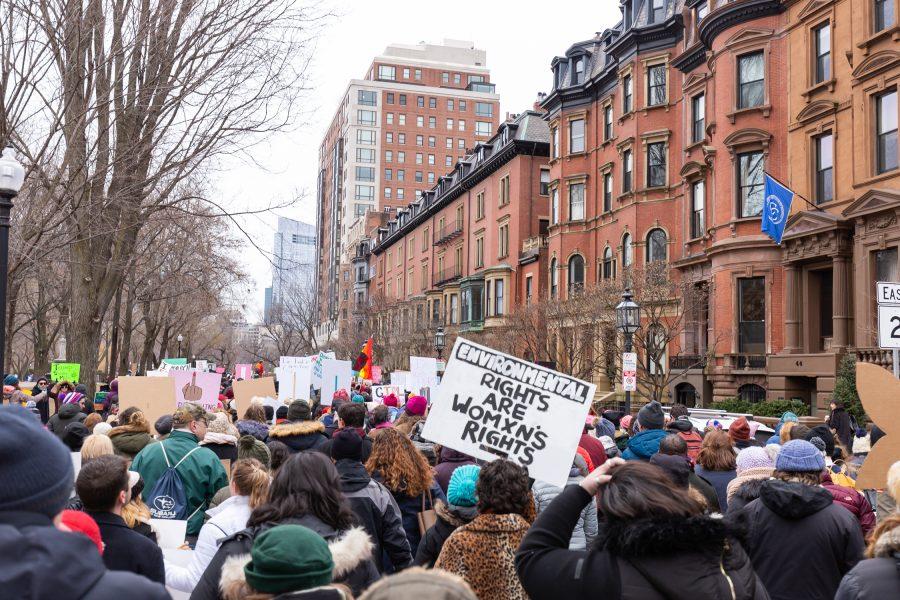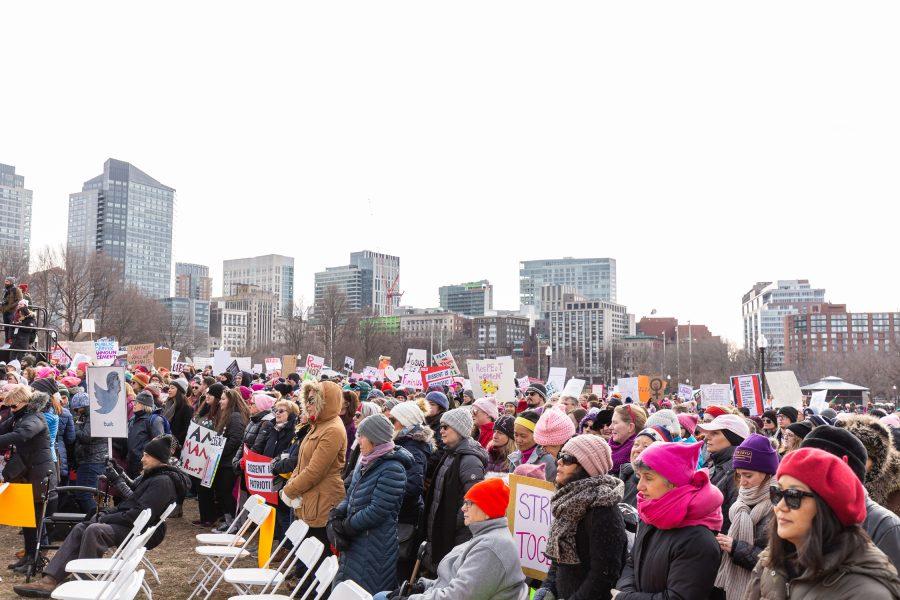Saturday, Jan. 19—Thousands of people of all ages, genders, and races gathered in the Boston Common to march for women rights. The March started with a rally in the Common with a speech from Congresswoman Ayanna Pressley. Many activists, including students, also spoke on the stage set up in the Common, pumping up fellow marchers. After the rally, around 12:30 p.m., people began marching. Starting in the Boston Common, the marchers went around the Public Gardens to Commonwealth Ave. and looped around back to the start of the march. At the front were women carrying signs reading, “No More Stolen Sisters,” while wearing traditional Native American clothing. Throughout the crowds, there were many inspiring signs as well as signs mocking the United States’ president, Donald Trump. These signs included, “A Woman’s Place is in the Resistance,” “Dissent is Patriotic,” “Women’s Rights are Human Rights,” “Build Bridges not Walls,” and “Free Immigrants Arrest Trump.” There were also marching bands in the crowd playing uplifting music, and a man on stilts dancing.
Those in attendance said that the March was an inspiring sight. The Women’s Rights Movement has come a long way, but it still has more to go to have equal rights for all.
The Women’s March was first organized in 2017 after Donald Trump’s election, rallying mainly for changes for women’s rights following Trump’s inauguration. The march was organized in Washington D.C. and in thousands of cities around the U.S. and the world. During the first March in Boston, over 175,000 people gathered in the Common, and two years later a couple thousand turned up too. This year many chose not to march due to the cold weather, and the allegations of national March leaders’ antisemitic comments. Although the Massachusetts organizers are not affiliated with these comments, the outcome was lower than from previous years.
This year, people were marching for various reasons. According to the Women’s March Agenda that can be found on their website, this year’s March stands for: ending violence against women, ending state violence, reproductive rights and justice, racial justice, LGBTQIA+ rights, immigrant rights, economic justice and workers rights, civil rights and liberties, disability rights, and environmental justice. Overall, the three main policy priorities for the rights of all women include: universal health care/medicare for all, an equal rights amendment to the constitution, and ending war. These themes were heard and seen at the March through signs, comments, and speeches.






















































